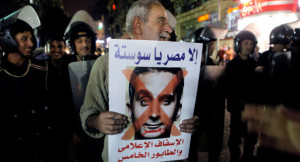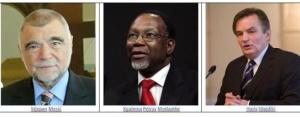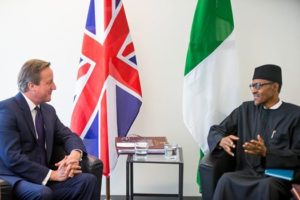By: Vashkar Bhattacharjee
Diversity policies, especially when it comes to disabled people, are often created and
implemented by decision makers with very different life experiences to those who their policies affect most.
We would never expect economic policy to be crafted without input from economists and
bankers. We should demand the same for disability policies, if we want to create the change needed to produce inclusive societies.
Starting in 2017, I was humbled to be given an opportunity to develop the first multi-media, audio dictionary translating Bangla to English. As a disabled individual who is visually impaired, I was uniquely placed to design such a programme, and my lived experience. The principle of entrusting service design to those who have the most experience in that area is a logical, common-sense approach to policy, yet many governments can do more in this area.
This has been particularly true throughout the pandemic, where it has been particularly
important to respond quickly and appropriately to the needs of citizens.
For example, school children have failed in many countries through poor or non-existent
education provision. Medical professionals have been let down due to poor access to PPE.
This begs the question, why haven’t teachers created public policy regarding schools?
Why haven’t Doctors and nurses been a bigger part of public policy with regards to hospital management and equipment?
Those who have direct, lived experience should be able to formulate policy. I’m grateful that in Bangladesh, this is what we are increasingly doing, and we are seeing some groundbreaking results. If nothing else, this approach is consistent with other professions: When applying for a job, an employer will always demand evidence of past experience. There is no reason why this should
not apply to policy and politics.
You would never hire a builder to work on your house if they had never set foot on a building site: at most, you could hire an experienced interdisciplinary project manager if he or she was relying on the expertise of seasoned builders.
The benefit of applying lived experience to problem-solving has long been established in
business – governments should follow suit.
The founders of the ‘Lean methodology’ are a great example of this, where they developed a process of continuous improvement and waste elimination that saw a failing car production company, Toyota, turn into a global market leader.
This methodology’s pioneers, Kiichiro Toyoda and Taiichi Ohno, would demand that those working on the camper van, for example, would travel themselves in the vans they were trying to improve. This enabled them to uncover the sources of discomfort created through poor design, in a way that would have been impossible in a design office in Tokyo.
This cannot be directly applied to disability policy – it would be unethical and impossible to ask someone to be ‘blind’ for a period of time, in order to develop better policy.
The next best thing is for policy makers to engage with those who have the experience. The Bangladesh Government came to me, a visually-impaired citizen, to design an accessible Bangla-English dictionary for those with visual, audio or speech impairments.
My status meant that I was able to understand the nuanced challenges faced by those in a similar position to me.
As a result of my work, many disabled individuals have been granted access to translation tools that can open up the global world of work by removing the language barrier.
This isn’t about denigrating the policymaking experience of those in government, but it is about helping them empathise with those whom their decisions impact. When public services are not designed with empathy for the people who use them, they are useless, or even potentially harmful.
Mothers have to travel long distances with their newborns and wait in long queues to
collect government maternity allowances; citizens, not knowing where to go to access a service or even how to apply, ping-pong among different agencies, sometimes for months and years.
Unscrupulous intermediaries or ‘middle-men’ take advantage and charge exorbitant ‘speed money’.
The a2i empathy training programme, for example, arranges for relatively senior government officers to act as secret shoppers and visit citizens’ access points for services outside of their ministry or area of expertise. This exercise puts them in “citizens’ shoes” since they are forced to navigate public systems without any official or intellectual privileges.
This experience helps participants develop a critical eye that they use to scrutinize their own agency’s delivery systems and improve the overall quality of services.
This approach requires some creative thinking. Bangladesh has more than 30 million students and nearly 1 million teachers in over 120,000 primary and secondary schools.
The cost-intensive nature of traditional face-to-face teacher training methods, limited infrastructure and resource constraints means that it takes 5 to 6 years to update the knowledge and skills of every teacher in the system.
Afroza Nasreen Sultana, an Assistant teacher at Rangpur District School came up with the idea to create an online platform that would connect teachers in need of support, guidance and training with talented, high performing peers. This triggered the idea of developing the ‘Teachers’ Portal’ with support from the Ministry of Education and a2i.
The portal now has a membership of over half a million primary and secondary school teachers. Through this online platform, every member-teacher is now connected with peer ‘teacher-educators’ and mentors who are accessible 7 days a week.
This kind of real-world experience – as well as high-level expertise – should be part of
governance as we move towards a ‘new normal’.
There is no reason why Ministers for health shouldn’t be ex-Doctors, and Ministers for
education can’t be ex-teachers. When they aren’t, they should, as in Bangladesh, work with those who are.
Public service is not rocket science, but if it was, it would make sense to entrust it to the rocket scientists.
About the author: Vashkar Bhattacharjee is a visually impaired Bangladeshi national was awarded the UNESCO/Emir Jaber al Ahmad al Jaber al Sabah Prize for Digital Empowerment of Persons with Disabilities (2018/2019). He is currently working as National Consultant for Accessibility at the Aspire to Innovate (a2i) Programme of the Government of Bangladesh with technical assistance from UNDP. He has also served for “Young Power in Social Action (YSPA), a registered NGO based in Chattaogram.






